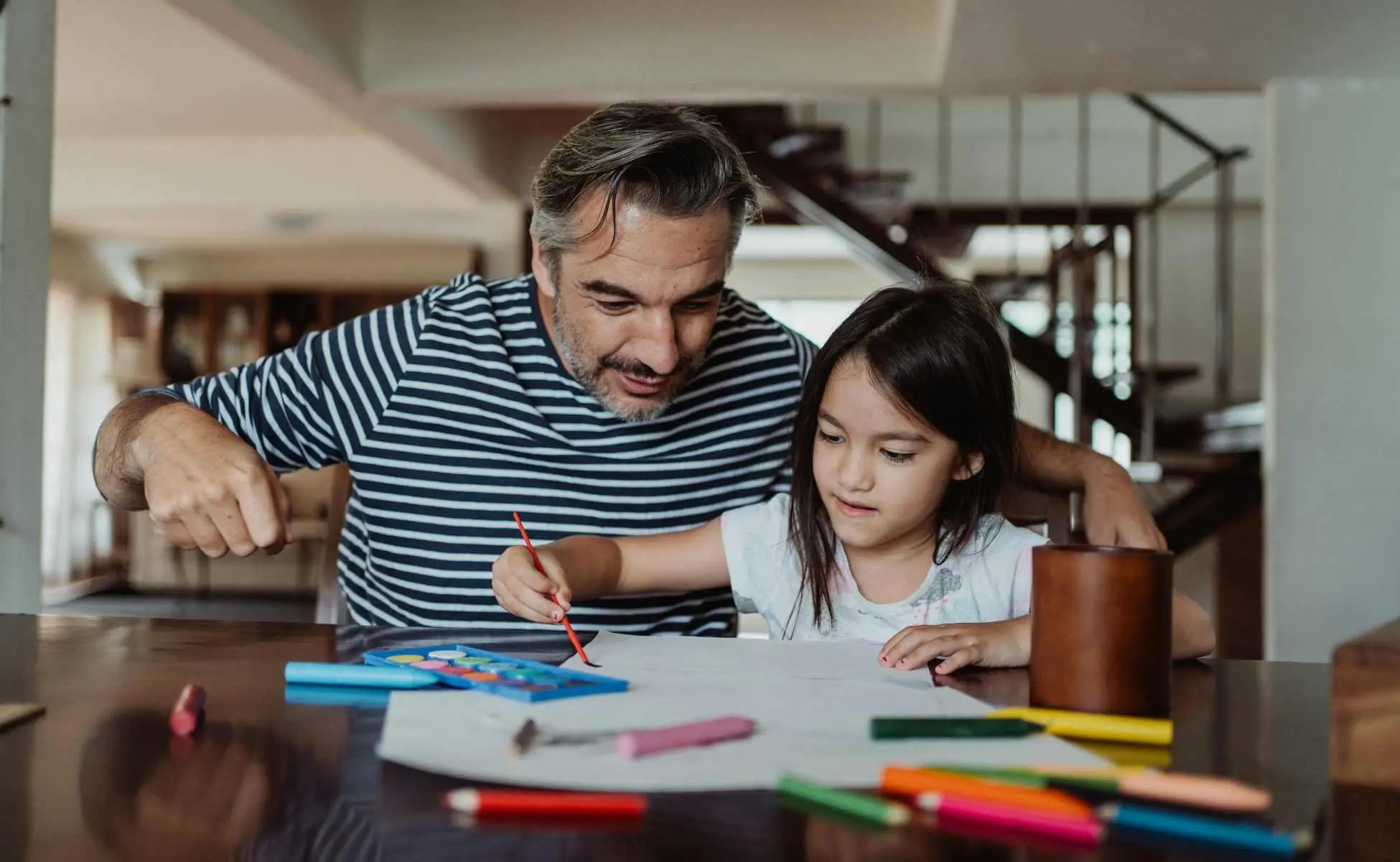Supporting neurodivergent grieving children

Grief is a unique experience, and each person will experience this differently, no matter their age, location, cognitive ability or neurotype. Often, grief support focuses on word-based ways to work through grief, such as writing in a diary or talking to a loved one or professional who will listen. Whilst these are great tools for lots of people, some neurodivergent children and young people may experience grief in their bodies and brains differently from their neurotypical peers and may face challenges recognizing and communicating this.
Most children will feel able to open up and engage with others when they feel safe. This safety is again, different for all children so use your knowledge of your child to create a safe environment for them. This can increase the likelihood of them sharing their more difficult thoughts and feelings surrounding their grief.
Though this body-brain response to grief is common in neurodivergent children, all children are neurodiverse (as this word describes the wide diversity in all brains), and the death of a loved one can be traumatic for all children. Because of this, many of the ideas in this blog will offer practical help for all children and young people, whether diagnosed as neurodivergent, on a waiting list for assessment, or not.
Safety and connection for neurodiverse children
Neurodivergent children benefit from understanding, acceptance, accommodations and adjustments that support their unique needs, especially after a bereavement. When this happens across all settings, e.g. home, school, college, and clubs, it can improve stability and predictability, ultimately creating an experience that feels safe for your child to explore their feelings of grief. This might include providing items they feel connected to such as toys, teddies, plants, animals or characters which can present a “safe” way for them to work through their grief.
Grief is incredibly complex at the best of times and for many children, this may mean a change in their behaviour. Some children may experience attachment issues or regression; for neurodiverse children, these things can sometimes be intensified. It can therefore be helpful to:
- Offer to stay with them to help them regulate their feelings and their bodies, but respecting their decision to be alone if that’s what they want
- Encourage them to continue with activities/interests that they enjoy
- Avoid situations that may increase their stress levels where possible
- Provide a space to connect with friends, key adults or Winston’s Wish practitioners who are outside of your immediate family if they would like to
Grieving as an adult whilst supporting a grieving child can be incredibly challenging; don’t be afraid to engage with professionals for support. Early help can offer a good platform for support, or you can talk with your child’s health visitor, school nurse, nursery, school or college.
If you have any concerns about your child managing day-to-day tasks, speak to their GP for advice.
Sensory processing differences
Neurodivergent children may have differences in how their brain receives, interprets and responds to sensory information. This means that, at any time, they may experience heightened or reduced sensitivity to input (such as noise, light, textures, smell, touch, and motion), which can affect how they move and interact. These responses may include:
- An increase in fidgeting, chewing or stimming
- Heightened response to the texture of clothing and increase in preferences
- Altered responses to smell
- An increase or decrease in activity level
- An increase in impulsive behaviour
To learn about some ways to help a child having difficulties with their sensory differences, read our blog about supporting a bereaved child who has autism. Speak to your GP or browse the NHS website to explore additional information about sensory differences.
Bodily cues
Neurodivergent children, including those with ADHD, autism, hypermobility and many more conditions, often report interoceptive differences. This means they may have difficulty noticing body signals resulting in missing cues that inform their emotional or physical experience. This may cause changes such as:
- Feeling the pain of grief physically in their bodies
- Changes in eating habits, including overeating or reduced appetite
- Regression in continence or other aspects of their independence
- Changes in sleeping habits
- Changes in their approach to hygiene, e.g. showering more, or resisting bathing
Try to help the child connect the dots between what they are feeling inside and how to support themselves. Our activities for children can help with this.
Emotional regulation and communication differences
Managing emotions can be particularly challenging for neurodivergent children who may experience intense distressed behaviours or difficulties in recognising, connecting with, and expressing their emotions. Following a bereavement, their window of tolerance may also change regularly as a result of:
- Where they are
- Who they are with
- What time of day it is
You may find that they show increased distressed behaviours, cry more or less than you anticipated, laugh at unusual times, experience mutism or other communication struggles, experience their feelings more intensely and even feel less confident. You can help them through this by:
- Providing safe physical outlets for their emotions, such as beating a drum, stamping their feet, or kicking a ball
- Follow their lead and listen to what they need to do in that moment, e.g. talking, writing or using familiar technologies such as laptops, mobiles and tablets
- Providing opportunities for them to express themselves without words, for example by using playdough or drawing
- Meeting them with compassion if they are unable to do their normal tasks
- Offering extra help with their physical needs such as eating, sleeping, washing, exercising and resting, but still respecting their boundaries around these.
Neurodivergent children can respond well to things that allow them to use their body and brain without talking, such as through music, pets, sound, art, movement, Lego, and sand trays. Here at Winston’s Wish, we can offer creative therapies to children who may find talking to a counsellor in the traditional sense more challenging. Discover more about creative therapy in this blog.
Finally, neurodivergent children can be especially sensitive to the emotions of others. It is important for all family members to be able to express their own grief naturally, but it is good to have an awareness that this may impact a neurodivergent child in different ways. Explaining to all children that grief is individual, no two people will experience it in the same way, and however they experience it is okay, knowing this can help validate their feelings.
How to get immediate grief support
If you need advice on supporting a bereaved child or young person, you can call the experienced Winston’s Wish team. Our bereavement specialists are available to speak with right away. No appointments or waiting lists, just real-life grief support. Call us on 08088 020 021 (open 8am-8pm, weekdays), email ask@winstonswish.org, use our online chat (open 8am-8pm, weekdays) or text or WhatsApp us on 07418 341 800 (open 8am-8pm, weekdays). You must be 13 or older to receive support via WhatsApp.
For urgent support, please call 999.

You might also like

Social Stories
Download our free social stories to talk about death, grief and bereavement with a child or young person with autism
Connect with us
Sign up to our newsletter and follow us on social media for all our latest news and advice on supporting grieving children and young people.


